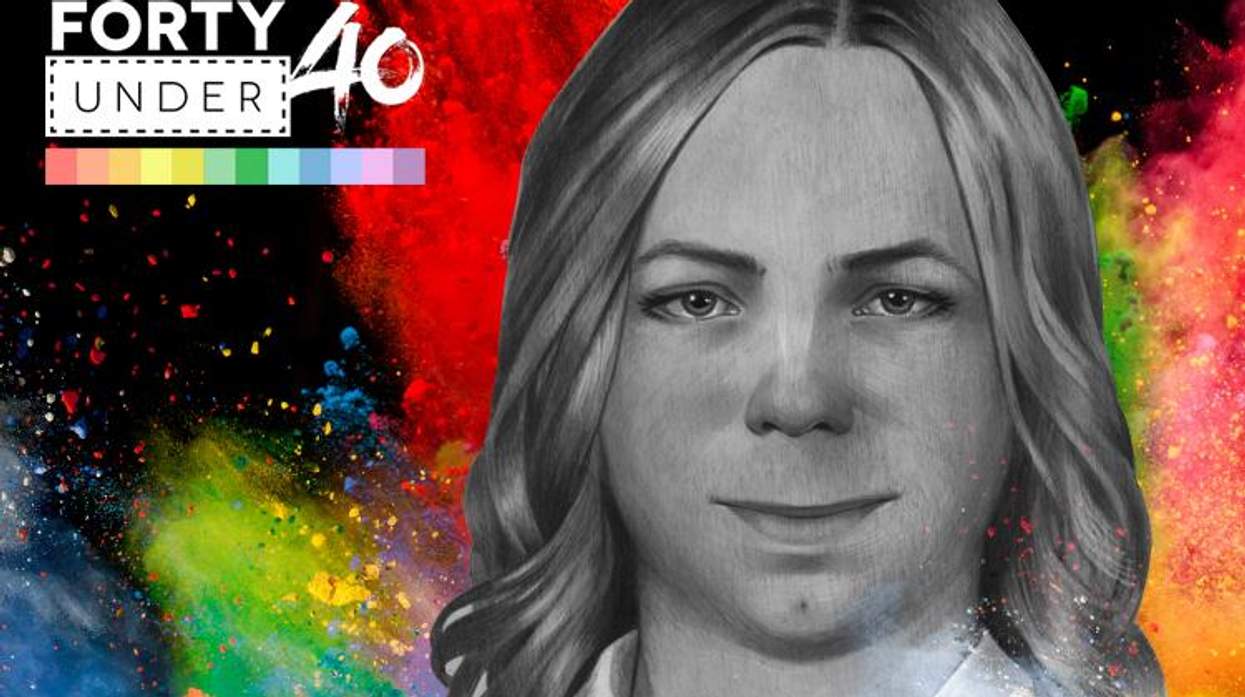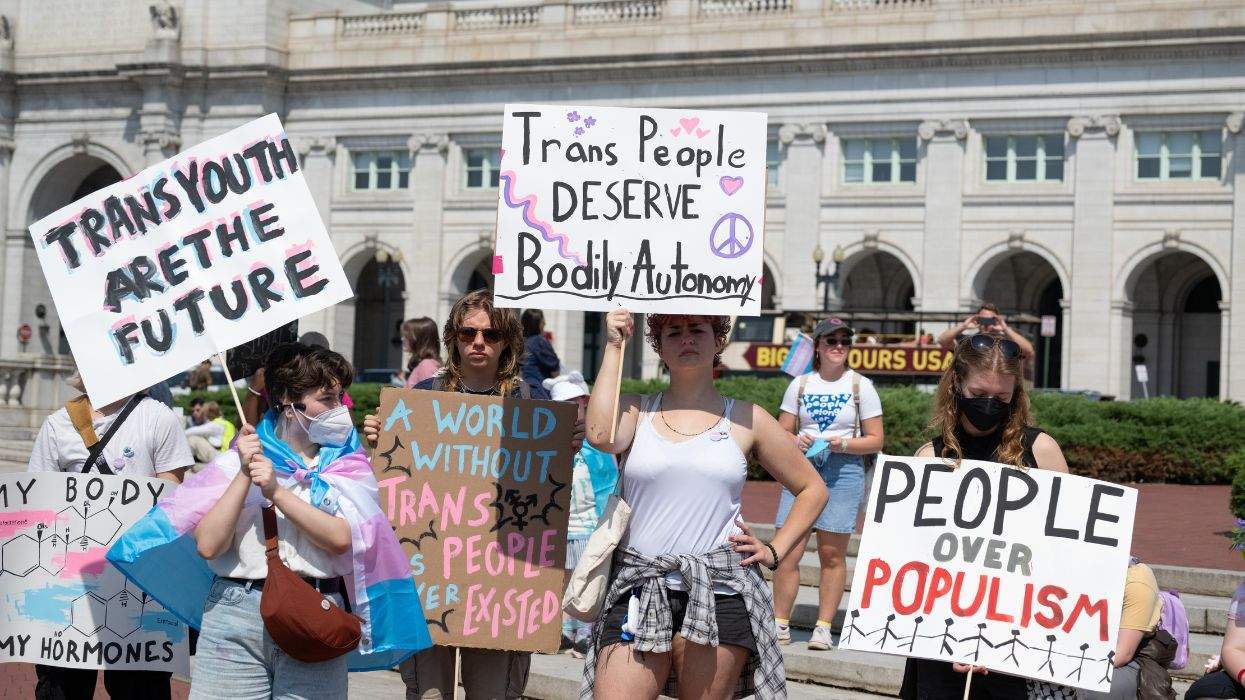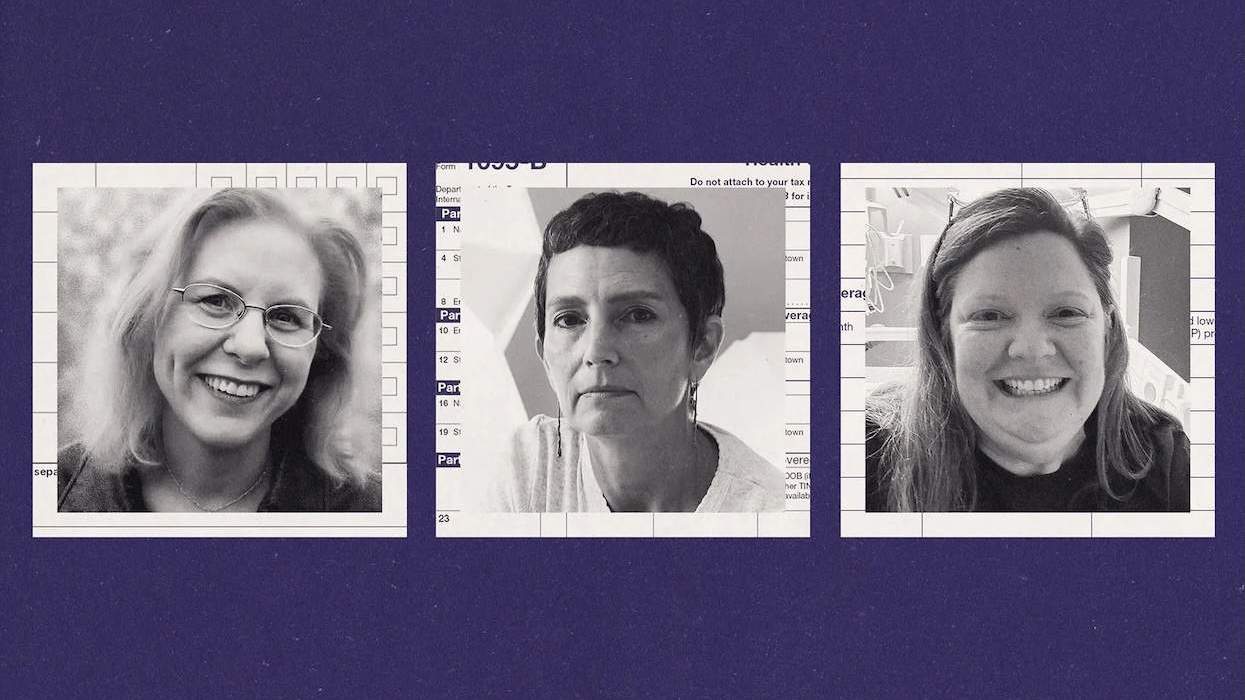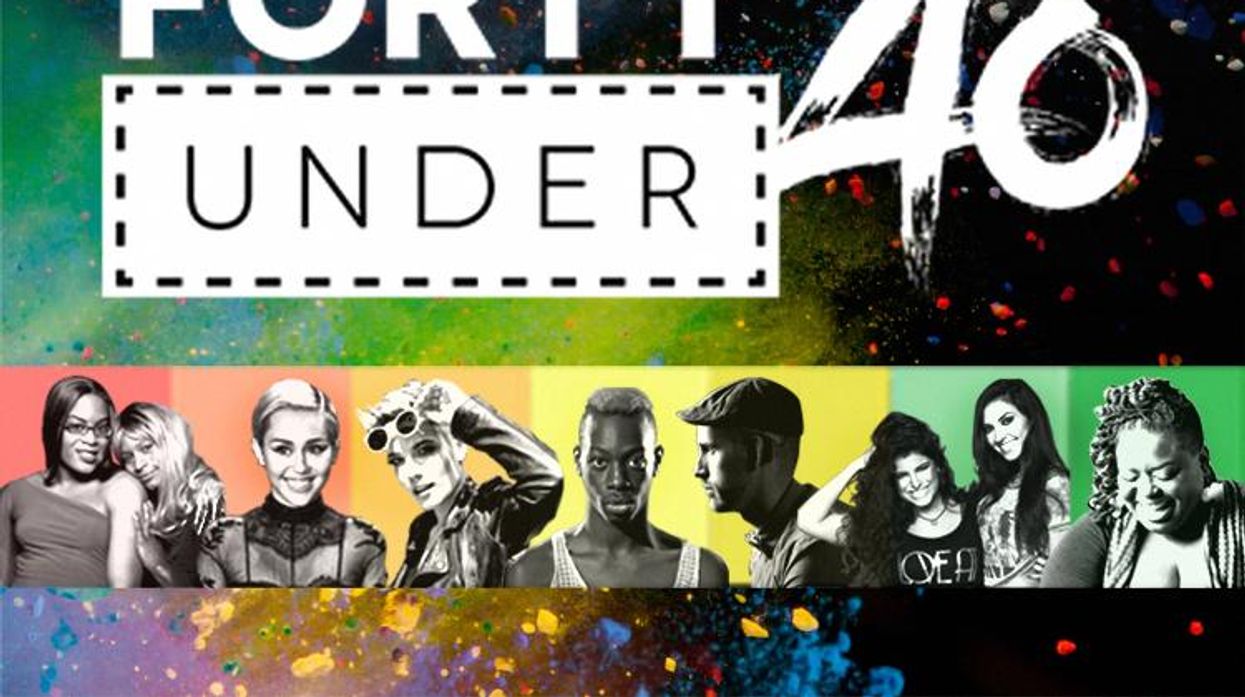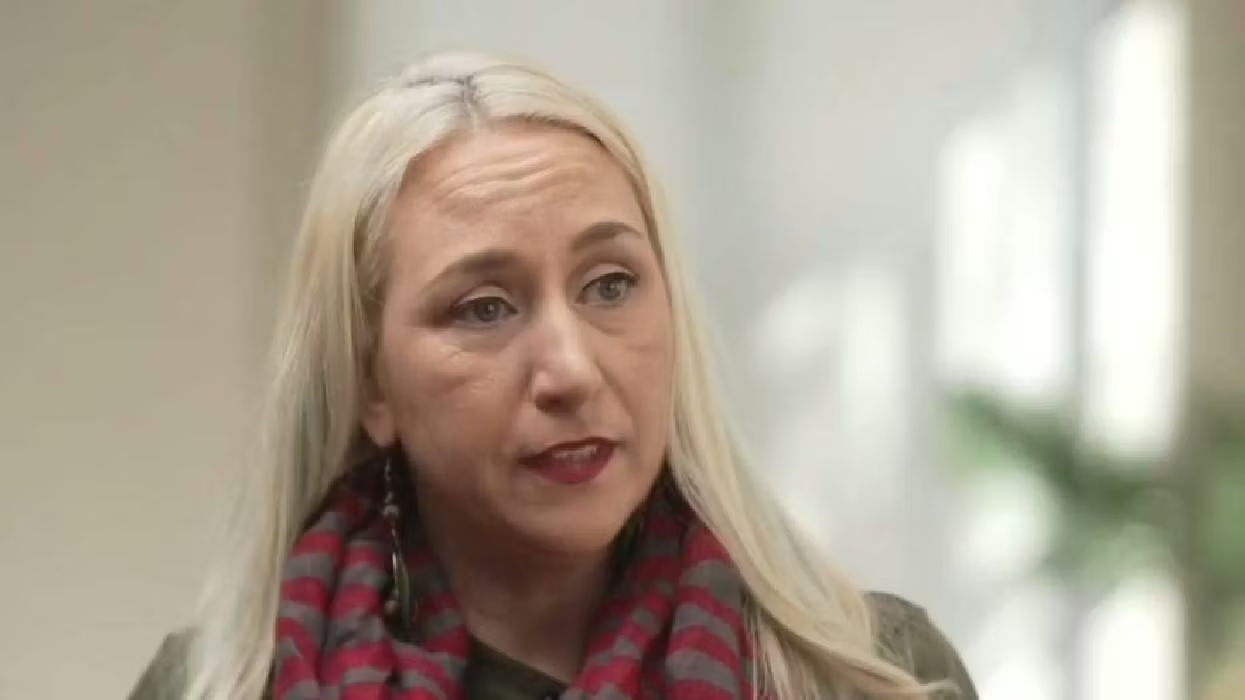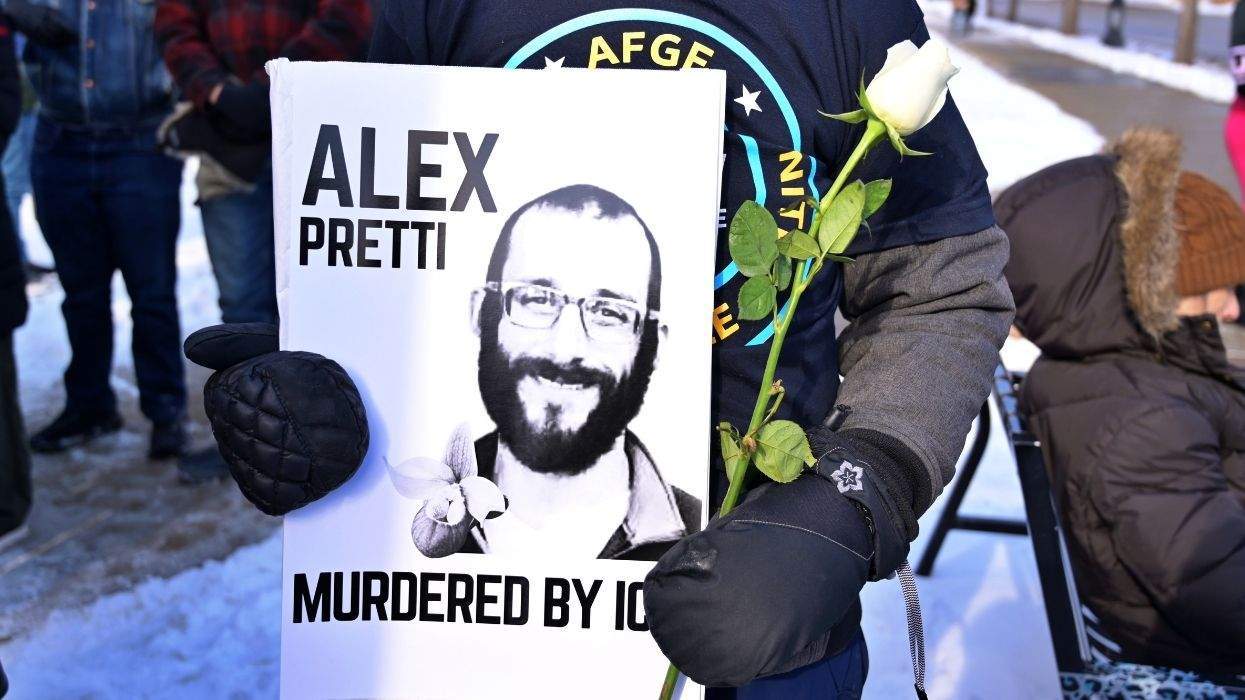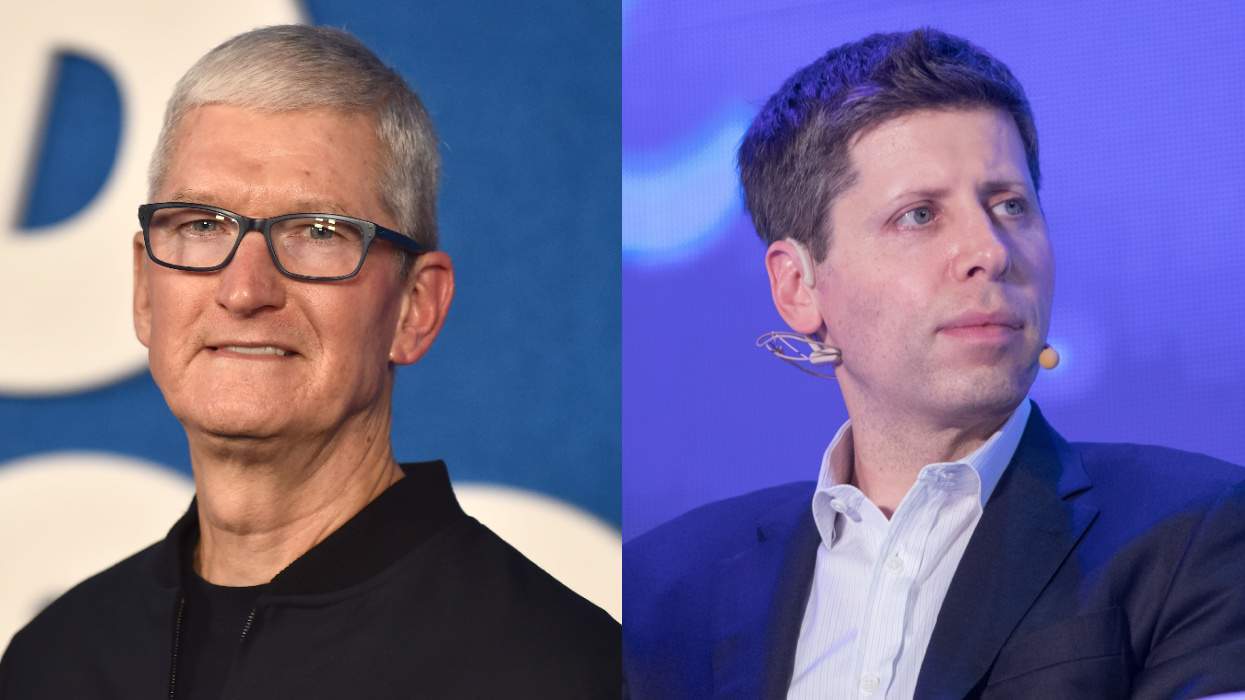Political prisoner. Freedom fighter. Hero. Traitor. Freak. Girly weirdo. All those terms have been used to describe Chelsea Manning. Whatever she truly is, she is not a hero, even by her own admission.
"I often hear and read that many people all over the world consider me a 'whistleblower' or a 'heroine.' This experience can be a little intimidating at times," she tells The Advocate. "That's an idea that would be a lot to live up to! I don't feel like I can live up to the expectations of being a 'heroine.' I don't have any special powers or abilities like a comic book super hero. I actually feel a lot more vulnerable than that. In fact, I am very vulnerable. I just try to be myself, and that's all I aspire to be."
Even while in prison, Manning has tried to become a voice for those who are vulnerable. These days she is speaking out against overly broad government surveillance programs, which she says put the least powerful at the most risk of losing their privacy or having their civil liberties trampled.
The 27-year-old former Army intelligence specialist, convicted in 2013 of releasing thousands of classified government documents to WikiLeaks, is two years and four months into a 35-year sentence that could end with her parole by 2021. At the time of her conviction, she explained her rationale for her actions. "I began to become depressed with the situation that we found ourselves increasingly mired in year after year," Manning said of the wars in Iraq and Afghanistan. Manning says she wanted Americans to become as disillusioned as she was with war. All of that means Manning as a voice for change in national security is already unwelcome by some, who still say her actions were dangerous.
Further complicating her public image is the fact Manning is transgender, and 10 months into the first government-funded gender transition in a U.S. military prison. Hormone therapy was approved by the Defense Department February 5.
"It sucks to have to fight every battle and push boundaries all the time," she said. "The prison and the military can make me feel invalidated when they choose not to respect me for who I am, but I genuinely feel accepted by everyone else that I live with."
In a series of handwritten and emailed letters, Manning tells The Advocate being named to the 2015 list of "40 Under 40" came as a complete but very welcome surprise.
"I was very shocked to find out that I was named on your list," she said. "I am very, very honored. I hope that this list helps us realize that we have all these different intersections between the different communities out there and in here that we can use to start to work together. We should really examine the way our society is set up in such a way that the most vulnerable among us are usually doomed to fail."
And Manning added, in another note, "It means an awful lot to me -- especially right now, when I have so many battles every single day."
Battles like the length of her hair -- which the Department of Justice filed a brief about to enforce a federal prison requirement that applies only to male inmates at Fort Leavenworth: nothing longer than two inches off the scalp. She wrote that being forced to cut her hair was "devastating and humilating." Battles like when she was "caught" with expired toothpaste, copies of Vanity Fair -- the June issue with Caitlyn Jenner on the cover -- as well as The Advocate and Out magazines. She could have been punished with solitary confinement, instead of the isolation she already experiences, which she writes leaves her feeling "so alone, very often." She tweeted -- with the help of her attorney -- that she was sentenced to 21 days of restrictions on recreation: "no gym, library or outdoors."
All of that slowed progress on what Manning considers her newest push to protect human rights. With her ties to Wikileaks, Manning is often mentioned alongside Edward Snowden, who is also alternately called a whistleblower or a traitor. In that case, the leak of classified information revealed previously secret government surveillance programs. And opposing that level of privacy violation has also become a cause for Manning while behind bars, where she constructed proposed legislation that would overhaul the Foreign Intelligence Surveillance Act.
Designed to end intelligence agencies' abuse of power in spying on U.S. citizens, FISA has defined how the United States conducts espionage for 40 years. But FISA, according to Manning and others, has created its own set of problems, such as a system of courts that operate largely in secret. Putting the bill together was "the most difficult underaking since arriving here after my court-martial in 2013," she wrote on Medium.
"We should abolish the entire FISA Court system," Manning wrote in an accompanying op-ed in the British newspaper The Guardian in November, "and bring all surveillance requests into the oldest and most tested court system in America: the U.S. district courts and courts of appeal."
Her 139-page bill was met with silence, reports The Hill, and ignored at the Capitol.
Like a number of minority populations, LGBT people know what it's like to be watched by the government. In the 20th century, those citizens who found their privacy invaded and livelihoods threatened by investigations included many LGBT people, as the federal government actively sought to rid its workforce of so-called deviates. Now much has changed, and LGBT Americans can receive high-level security clearances for government work.
Still, when Manning's case first surfaced, the right wing used it to trot out that old talking point that LGBT people can't be trusted to work with government secrets, especially not classified military intelligence.
At the start of her trial in 2013, The Daily Beast reported Manning's leak of documents in 2010 "was not the gravest intelligence breach in U.S. history, but it was the most expansive." Among those documents: details of meetings with heads of state, frontline intelligence reports from Afghanistan and Iraq, a video claiming to show a deliberate air strike on a Reuters photojournalist in Iraq, secret talks between Arab governments and Israel, and papers that exposed a secret deal that allowed the U.S. to conduct drone strikes in Yemen.
Manning's leak has also been said to have triggered uprisings in Yemen, Bahrain, and Libya, according to the Beast, and helped spark revolutions in Egypt and Tunisia that overthrew governments, actions later dubbed the Arab Spring.
"I think the major accomplishment of my life, so far at least, is that I am still alive," she says, "and that I am, still very optimistic about the future."
Manning turns 28 December 17. She writes that it will be her sixth birthday behind bars.
